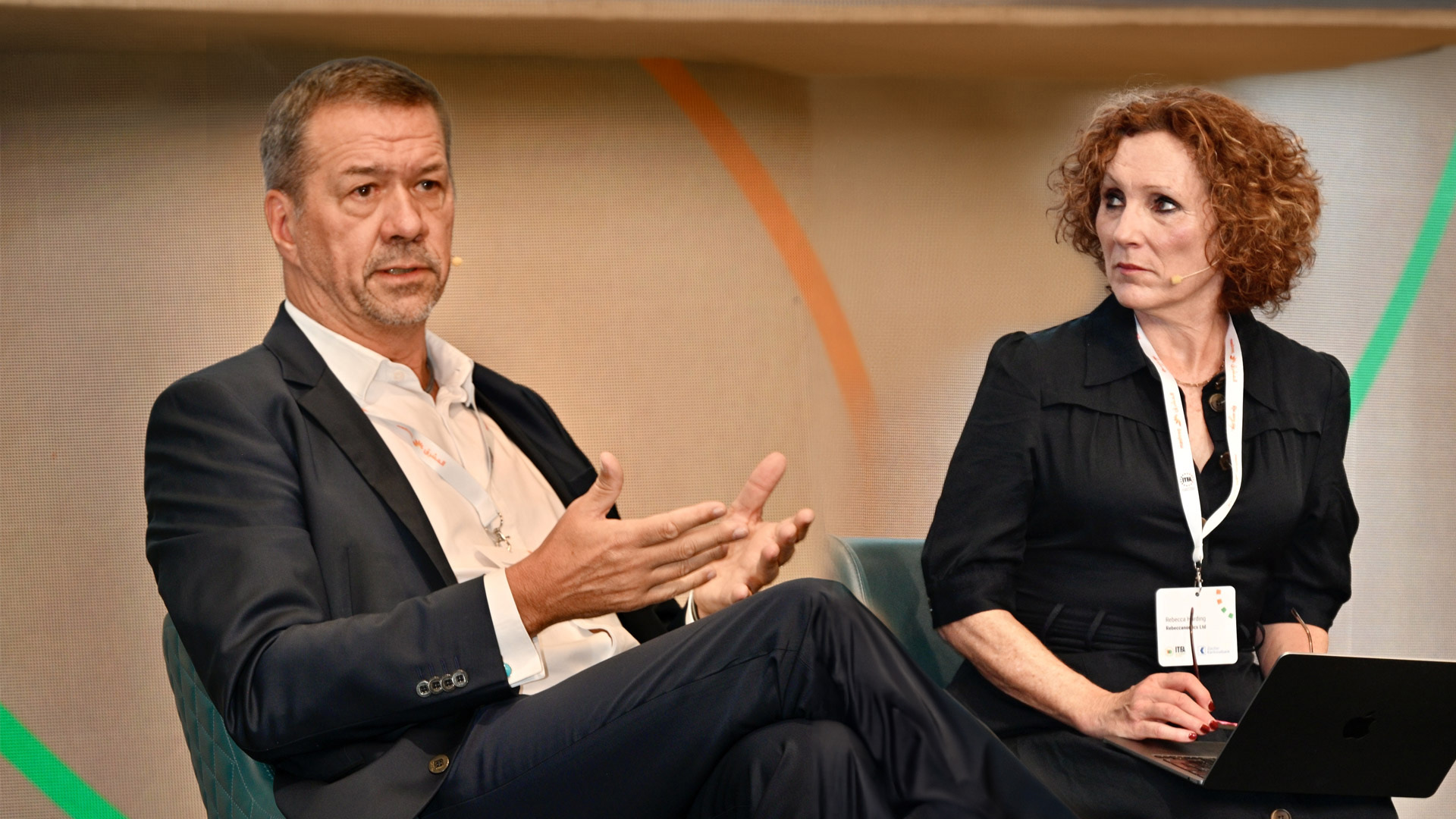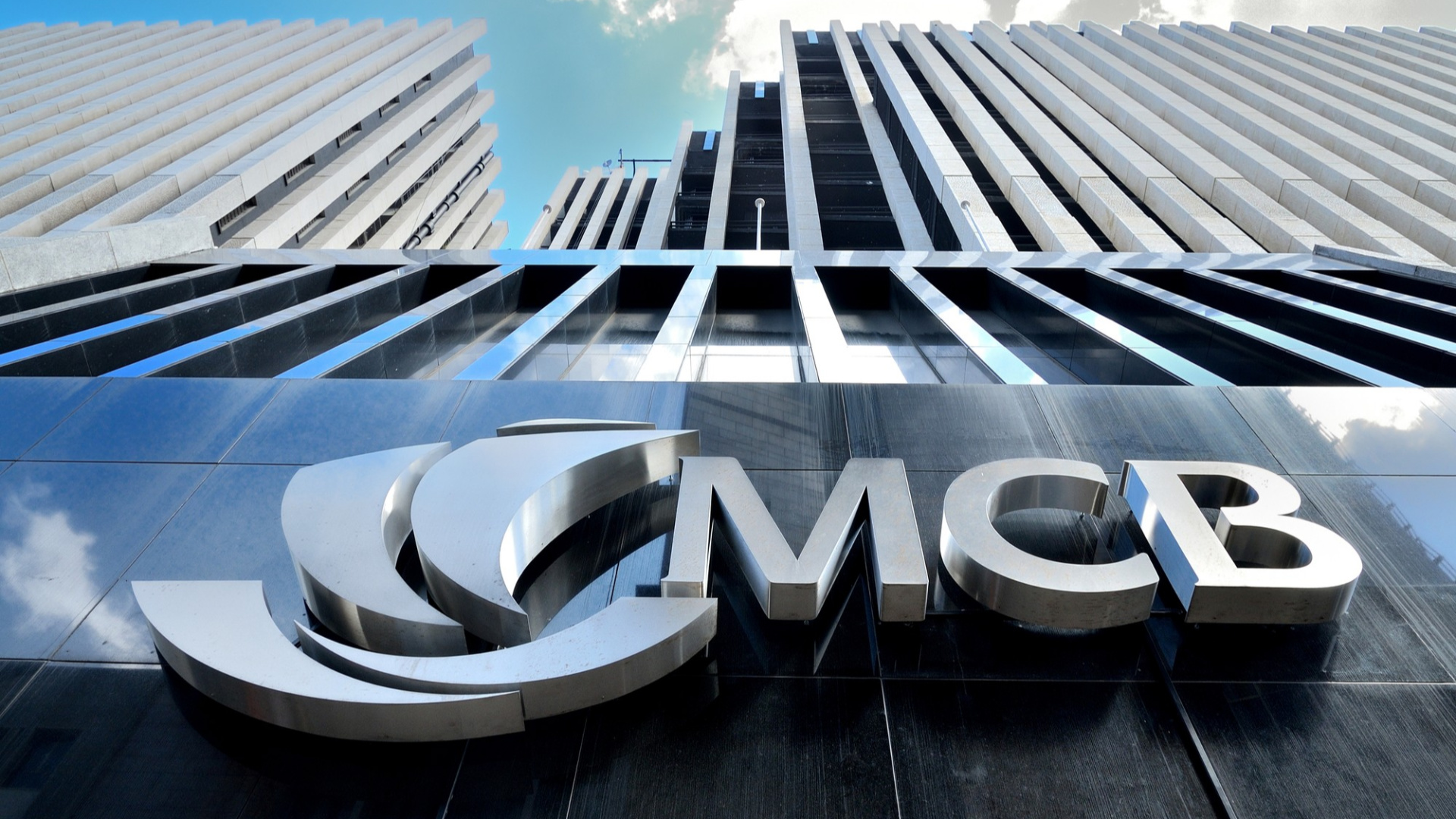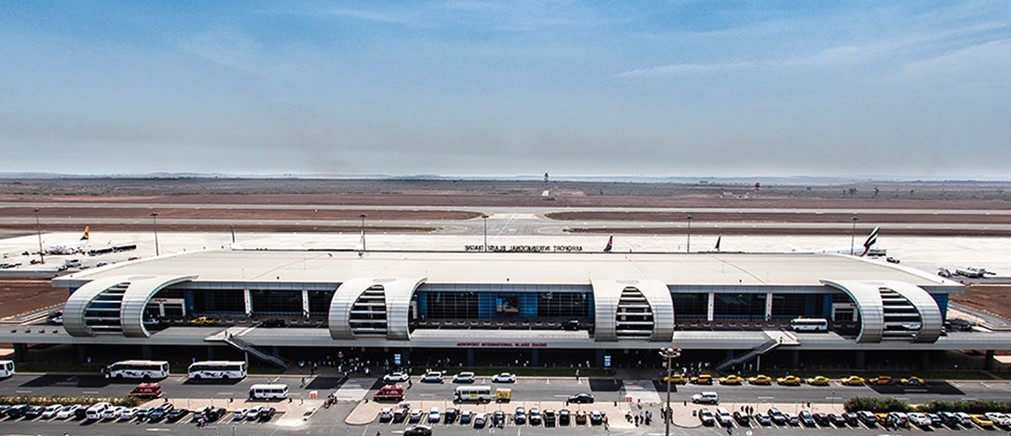- Home
- Investor Centre
- Sustainability
- Talent
- News
- TH!NK
- Corporate Governance
- Company Profile
- Board of Directors
- Community
Contact Info
Thierry Hebraud: “African Trade will be at the forefront of sustainability”

Thierry Hebraud, CEO of MCB Ltd, was invited as a key speaker during the 50th International Trade and Forfaiting Association (ITFA) conference, held from September 4 to 6 in Limassol, Cyprus. He had a firechat interview with the internationally recognized Economist, Rebecca Harding, where they discussed sustainability in Africa and the reasons for it to be treated distinctively when developing frameworks or principles for ESG reporting standards. This was an opportunity for Rebecca to profile the work being done by the ITFA Working Group to create inclusive principles around ESG reporting and it also provided a platform for Thierry Hebraud to share his insights on how Africa must navigate its path toward sustainability and energy transition in a way that reflects its unique realities.
Thierry Hebraud discussed the challenges Africa faces in the global push for Environmental, Social, and Governance (ESG) standards. When asked whether international regulators consider the specific needs of emerging markets, particularly Africa, Thierry Hebraud pointed out that ESG was brought forward upon the 2030 Agenda for Sustainable Development, adopted by all United Nations member states in 2015. He highlighted that 17 Sustainable Development Goals (SDGs) was about prosperity for people and the planet now and into the future. He raised that 1 of SDGs was about Climate Actions but the others were about ending poverty, improve health, education, reduce inequality and affordable energy. The Credit Agencies and regulators must not only focus on climate action which is a top priority for western & developed world but for developing countries, the 16 other SGDs are as essential with maybe even a higher weightage than climate for Africa. More candidly speaking, Western priorities in climate action must be balanced with Africa's pressing need for affordable energy, education, and social equity.
The CEO of MCB Ltd made the case for striking a balance when defining ‘just transition’ to renewable energy in the context of Africa considering that Africa contributes only 4% of global greenhouse gas emissions, compared to 25% from G7 countries,". He highlighted how the continent's broader environmental and social issues—such as deforestation and labor conditions in supply chains—require attention beyond decarbonization efforts alone. " . Thierry Hebraud underscored that the world cannot continue with a "one size fits all" approach while, as per the World Bank, 600 million Africans remain without electricity. This energy crisis cripples healthcare, education, and economic opportunity, leaving millions in the dark—literally and figuratively. Therefore, he called for acknowledging the continent’s critical need for tailored solutions instead of blanket policies applicable for wealthier nations. It is indeed time to face the reality: Africa’s broader needs—energy access, social equity, and sustainable development—must be at the heart of climate action, or we risk leaving an entire continent behind.
When discussing Africa's position in global efforts to address climate change, Thierry Hebraud acknowledged that while Africa contributes a small fraction of global emissions, the continent suffers disproportionately from the consequences of climate change, such as extreme weather events. He noted that in East Africa, periodic droughts and floods cost nations between 5% and 8% of their GDP per event, with governments facing a regular fiscal liability of over 2% of GDP per year. Africa currently receives around USD 30 billion annually for climate adaptation efforts. However, this amount falls significantly short of the continent's actual needs, which are estimated at USD 277 billion per year. This discrepancy highlights a substantial financing gap, emphasizing the urgent need for increased financial support to effectively address and mitigate the impacts of climate change across the continent. Without adequate funding, Africa's ability to adapt to climate-related challenges and ensure sustainable development is severely compromised.
Thierry Hebraud highlighted the growing demand for critical minerals like cobalt, nickel, and lithium—resources that are abundant in Africa—as part of the global energy transition. He argued that if managed effectively, Africa could not only contribute to global green supply chains but also benefit economically by capturing more value from its natural resources. By investing in local processing industries, Africa could maximize its share of the mineral value chain and significantly increase its GDP, eventually securing a leading role in the global shift towards sustainability.
In conclusion, Thierry Hebraud stressed that while international frameworks like the SDGs are important, Africa requires a more tailored approach to ESG, one that reflects the continent's unique environmental, social, and economic realities. "An ESG framework that places greater emphasis on the social dimension would be far more relevant and meaningful for Africa," he said, underscoring the need for an inclusive and equitable transition to a sustainable future. The future of Africa requires greater collaboration and a clear understanding of the African specific needs with a sustainable mindset. Africa shall be at the forefront of sustainability.
Subscribe to our Email Alerts
Stay up-to-date with our latest releases delivered straight to your inbox.
Contact
Don't hesitate to contact us for additional info
Email alerts
Keep abreast of our financial updates.













